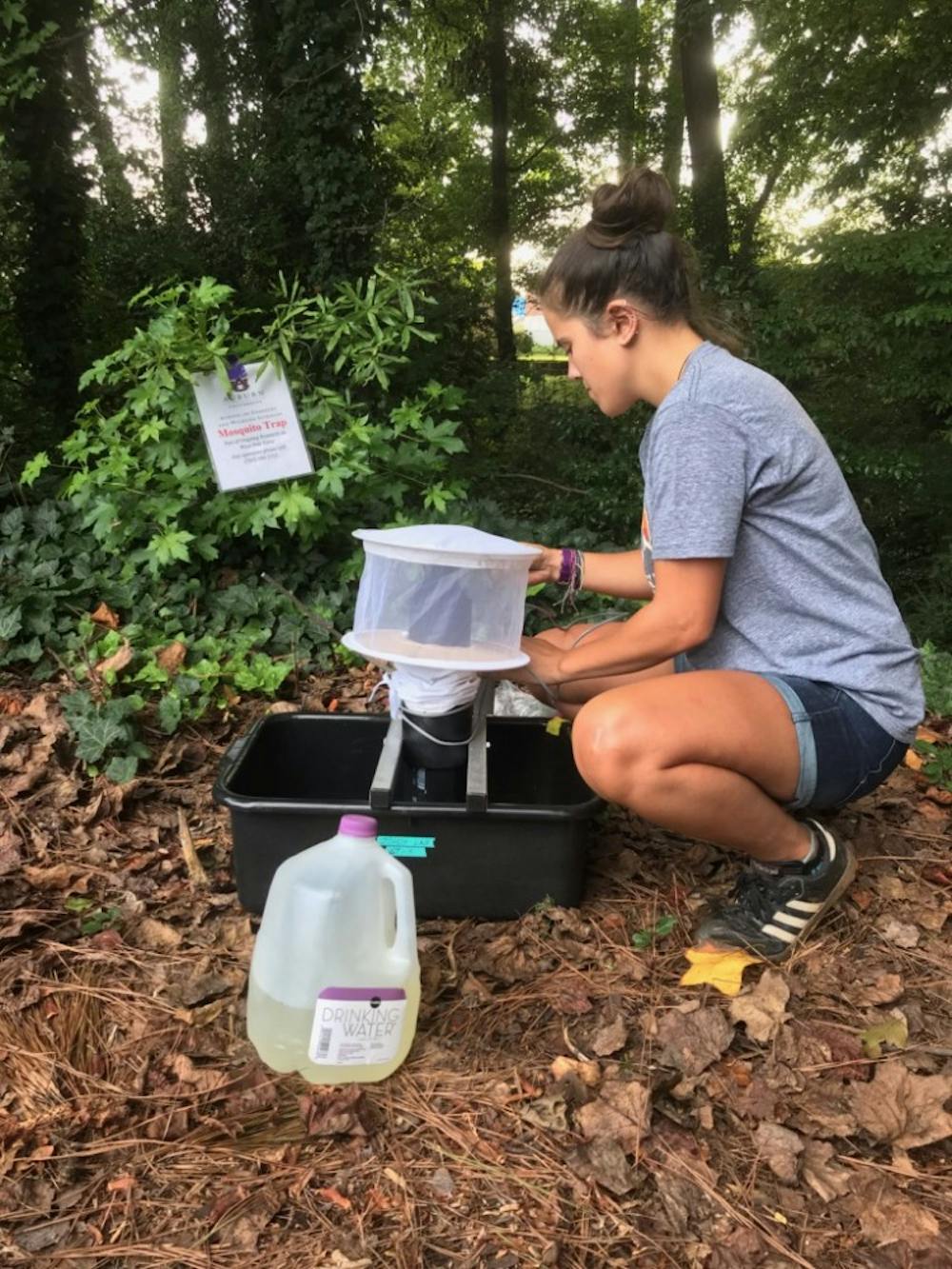Graeme Lockaby, associate dean for research in the School of Forestry and Wildlife Sciences, and Nicole Castaneda, graduate student, are conducting a study in the Atlanta area that looks for environmental factors contributing to greater risk of people contracting the West Nile virus.
The study is examining various factors such as types of trees in an area, forest-patch sizes, types of birds present and socioeconomic status of nearby residents. The study is based on a previous study, which was designed and led by Lockaby that was nearly identical but didn’t account for the types of birds present in an area.
In the previous study, researchers found that areas with pine trees had less risk of the West Nile virus, while forests with greater cover from trees had a greater risk.
They found that poorer neighborhoods were at greater risk for the virus because residents are more likely to leave their windows open, take less care of their lawns and leave out pots that collect stagnant water, where mosquitoes breed. Poorer infrastructure can also result in overflowing sewer systems or polluted water.
Lockaby wanted insight from someone who had experience with birds for his next study. Castaneda, who was applying for graduate school, reached out to him.
Castaneda said she has always had a fascination with animals and diseases. She began working for the Audubon Society rehabilitating wild birds, where she developed a love for birds and a desire to learn more about their diseases and health problems.
According to Castaneda, corvids, a classification of birds that includes blue jays and crows, help spread the virus faster than other types of birds. Robins show less symptoms of the virus, so they can survive & spread the virus for a longer duration than corvids.
Birds are a crucial part of the West Nile lifecycle and the primary host of the virus, Castaneda said. Mosquitos bite infected birds and transmit the virus to other birds and humans. The virus can only be transferred by blood.
According to Castaneda, 80 percent of humans who contract the West Nile virus do not show any symptoms and are called “dead-end hosts.” Nineteen percent of those who contract the virus develop “West Nile Fever,” with symptoms of body aches, rashes and a fever. The remaining 1 percent develop encephalitis, meningitis or both.
Castaneda said there are no reliable methods to catch wild birds that give a representative figure of the local population, so they have to use mosquitoes instead. They use mosquito traps to catch Culex mosquitoes and determine the risk of the West Nile virus in a specific area.
The Atlanta Audubon Society assisted Castaneda and Lockaby in their study by participating in bird surveys with Castaneda. She said having more than one observer in a bird survey significantly reduces the amount of errors.
Once the study has concluded, Lockaby said they plan to distribute the information they find to Atlanta residents, so they can reduce their risk of contracting the virus.
“It’s all about letting people know the degree of risk that may be associated with their location,” Lockaby said.
Lockaby said that the information they gathered is applicable in the north Georgia region, but is only partially applicable in other high-risk areas, such as Baltimore and Louisiana. He said Louisiana has a lot of pine forests in wet areas, so he guesses the correlation between pine trees and lower risk wouldn’t be found.
“That’s something we have to take care in how far we extrapolate the results,” Lockaby said.
He said they are hoping to make a new study to examine the risk factors in Louisiana, since it has a very different environment.
Do you like this story? The Plainsman doesn't accept money from tuition or student fees, and we don't charge a subscription fee. But you can donate to support The Plainsman.





